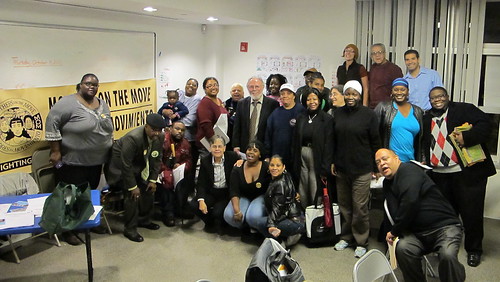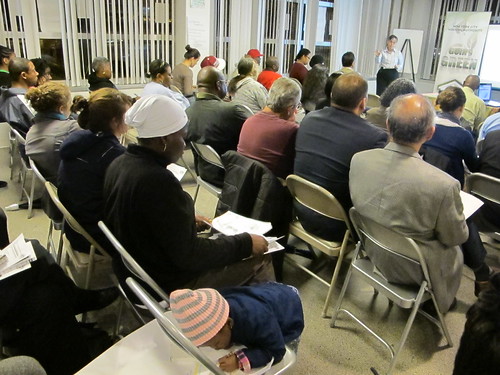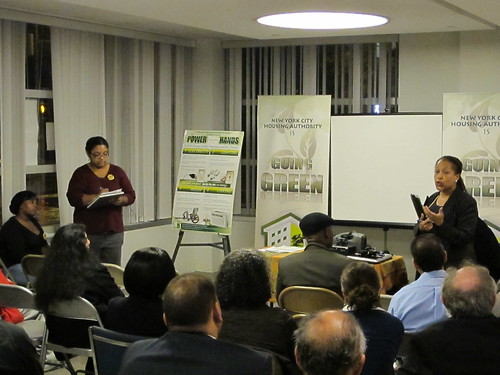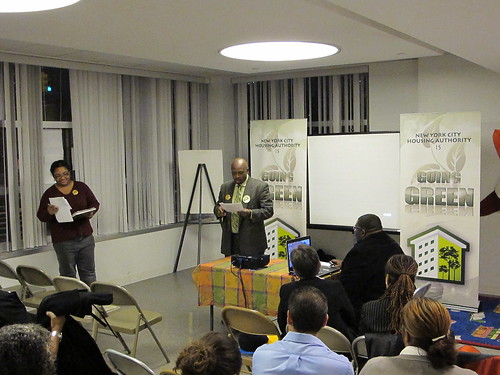The four-story wreck that is 920 Kelly Street is a South Bronx time machine for Harry De Rienzo. Its broken windows, garbage-choked halls, mold-mottled rooms and smoky stench remind him of what much of the area looked like nearly 35 years ago, when he first arrived to work at a settlement house.
Back then, 920 was among a handful of tidy buildings maintained by a landlord who was struggling against the arson and abandonment encroaching all around. His pluck inspired Mr. De Rienzo to organize the block and its beleaguered residents into the Banana Kelly Community Improvement Association, which renovated three crumbling buildings on the street and started Mr. De Rienzo on a career providing housing for poor and working people.
Half a lifetime later, Mr. De Rienzo is back on the block. But this time he is trying to save 920 and four neighboring buildings, which have fallen into such disrepair that they are considered among the city’s worst, with more than 2,000 housing code violations among them.
If Kelly Street was once an outpost of hope, Mr. De Rienzo and others worry that it may now be a harbinger of trouble for the South Bronx and beyond. In the feverish real estate speculation of the past decade, buildings like these were passed back and forth among landlords and banks. But since the bubble burst, the properties have fallen into financial limbo; many owners cannot keep up on mortgage payments, much less repairs.
“This is a real big problem,” said Mr. De Rienzo, 57, a plain-spoken, streetwise New Yorker who is now chief executive of Banana Kelly. “They thought they could always cash out their equity and flip the property. But when the recession hit, that kind of predatory investing stopped — and the tenants got stuck.”
Back in 1976, the fires that would incinerate so much of the South Bronx had begun to nip around the edges of Kelly Street when Mr. De Rienzo, fresh out of Manhattan College, started working at the settlement house, Casita Maria, running a basketball program.
Cooling down after games, he chatted with local residents about the neighborhood, where a near-bankrupt city was taking over scores of tax-delinquent and abandoned buildings, but doing little to make them livable.
He befriended Leon Potts, whose father, Frank, a hard-working jack-of-all-trades, owned several buildings on Kelly, living with his family in one of them.
“Potts was totally at variance with everything that was going on in the South Bronx at the time,” Mr. De Rienzo said of Frank Potts. “Here was a landlord who was staying put. He used to wake up at 5 in the morning to go to work on the trucks in Hunts Point. Then he’d come back and work on his buildings. He’d be so tired, sometimes I saw him sitting on the stoop, too tired to walk up three steps to his apartment.”
It was wrenching for Mr. De Rienzo to watch adjoining buildings go vacant, but he saw them as an opportunity.
“The city had written off the area,” he said. “Landlords had run away. So all we could do was sweat equity and do it for ourselves, since nobody else was going to do it.”
By the end of the 1970s, the three buildings that prompted the formation of Banana Kelly had been renovated and were being run by tenants. The organization expanded into social services and education. Mr. De Rienzo went to law school, and then to work for a foundation that supported community-based housing groups. And Mr. Potts, long the mainstay of his block, sold his buildings and moved away.
Today, to tour the blocks around Kelly Street is to see a world transformed. On Longwood Avenue, neat, brick town houses line the wide street. Modest apartments have risen from empty lots. Even Little Korea, a stretch of Fox Street famous for its murders, looks suburban with its boxy white homes.
Banana Kelly, the group that helped with the rebirth, did not fare so well. Mr. De Rienzo and others watched with alarm throughout the 1990s as the group sought international attention for its ideas on urban development while neglecting the housing that had been its original mission. In 2002 the state attorney general, spurred by complaints of mismanagement, forced out the group’s leadership.
As part of the deal, Mr. De Rienzo was coaxed into returning temporarily to get the group back on solid financial ground. He wound up staying on.
This year, conditions in the old Potts properties became so bad that two advocacy groups, Mothers on the Move and the Urban Justice Center, began speaking with tenants and city officials. In recent years, the city had placed four of the five buildings in a program that made emergency repairs and then billed the landlord.
Mr. De Rienzo began inquiring about the buildings after he noticed several boarded-up apartments while walking down his old block. A few weeks ago, he joined Mothers on the Move on an impromptu inspection and was alarmed by what he saw — particularly because a number of tenants have H.I.V. or AIDS.
In the lobby of 935 Kelly Street, visitors have to step over a pool of water formed by drips from a gaping hole in the ceiling. A pile of garbage and liquor bottles fills a corner. In one of the 32 apartments, Victoria Rosario has laid out brick-size rat traps — she has caught 12 so far — and sealed the holes in the walls with plywood.
At 920 Kelly, doors to empty apartments swing open to reveal garbage and feces-smeared rooms where windows have been knocked off their frames. A smoky odor wafts from the burned-out apartment next to Hector Claudio’s fourth-floor home. Inside, his walls are gray from mildew and soot.
“I threw out my sofa,” Mr. Claudio said in a raspy voice that rose barely beyond a whisper. “I had to throw out my clothes. I have asthma, fatigue and H.I.V. It’s too much. This has to stop.”
Just who owns the buildings is uncertain. While city records list John Abraham as the owner, the city’s housing agency can find no deed in his name. Tenants said they had been dealing with owners at an office on Washington Avenue, but the people who work there said they no longer managed the building because Mr. Abraham had refused to pay for repairs.
Mr. Abraham did not respond to phone messages, and a letter sent by messenger to the address listed in city records was returned as undeliverable.
Ridgewood Savings Bank holds a $5 million mortgage on the buildings. Mr. De Rienzo said he would try to force the bank to either repair the buildings or assign ownership to his community group.
Joseph T. Curcio, the bank’s vice president and marketing director, said that the properties were in good repair when the mortgage was issued “several years ago,” and that he had no idea of their current state. When told of the worst violations, he said, “Oh, my God.”
Mr. Curcio said the bank had begun foreclosure proceedings. “We’re left holding the bag as much as these poor tenants,” he said. “It’s unconscionable the landlord allowed these conditions to exist.”
The city, which continues to make repairs on the buildings, is now in discussion with Banana Kelly to see if the group can take over the buildings and avail itself of loan and repair programs. City officials have also been talking with banks to alert them to loans they have made to owners of similarly distressed properties in other neighborhoods.
For Mr. De Rienzo, who helped Kelly Street rebuild itself brick by brick, his latest crusade is about a much more personal debt.
“After more than 30 years dealing with this block, these people are like friends and family to me, so I can’t just walk away,” he said. “I’m not looking to save the world. I’m just looking to build something that will last beyond me.”
















